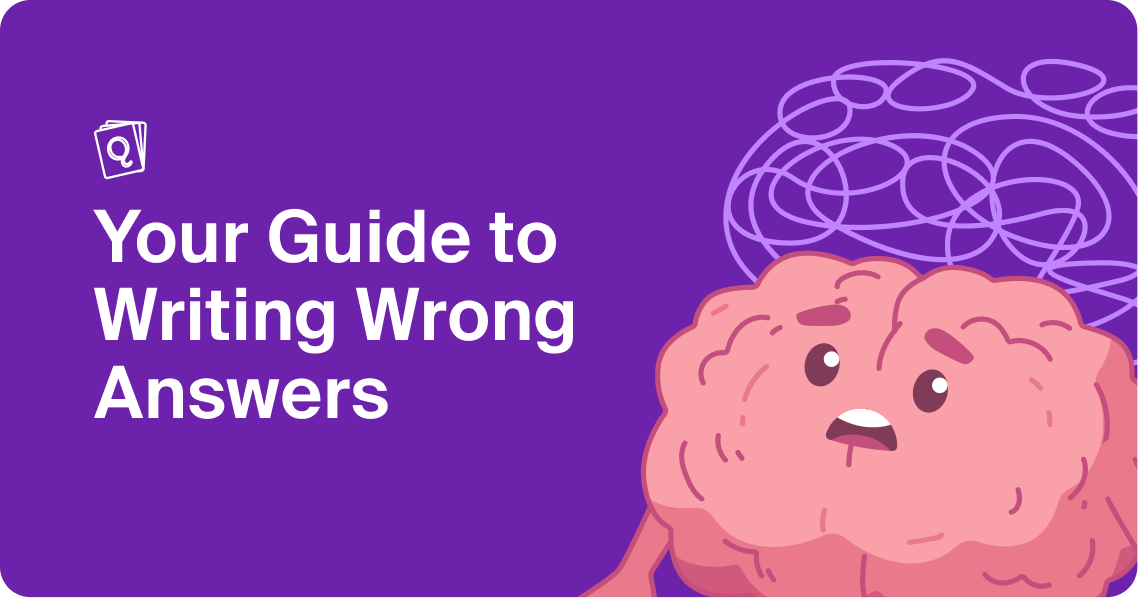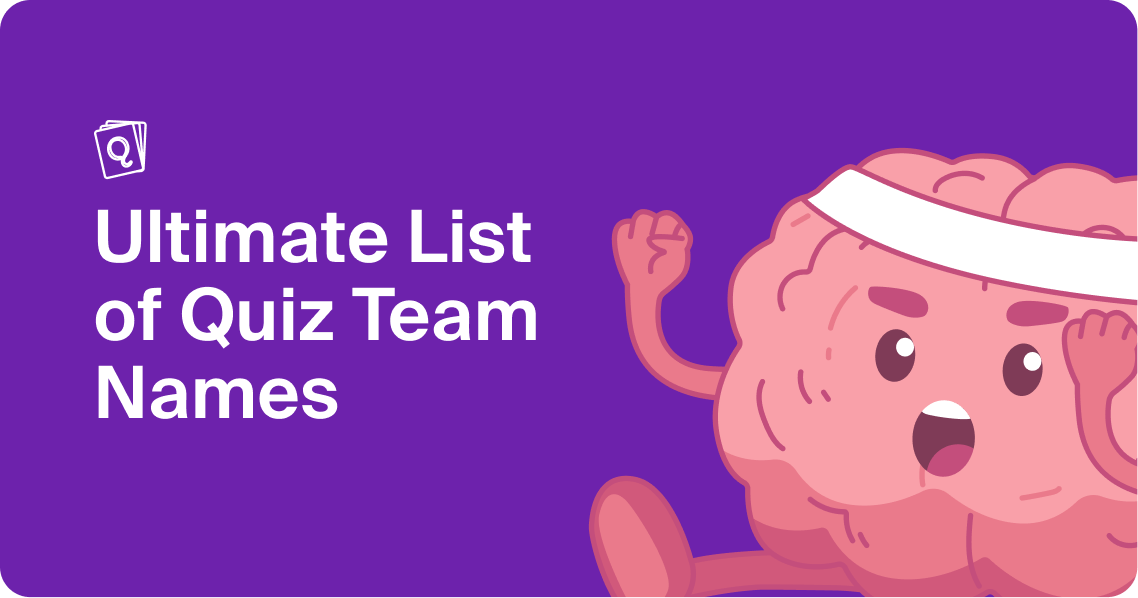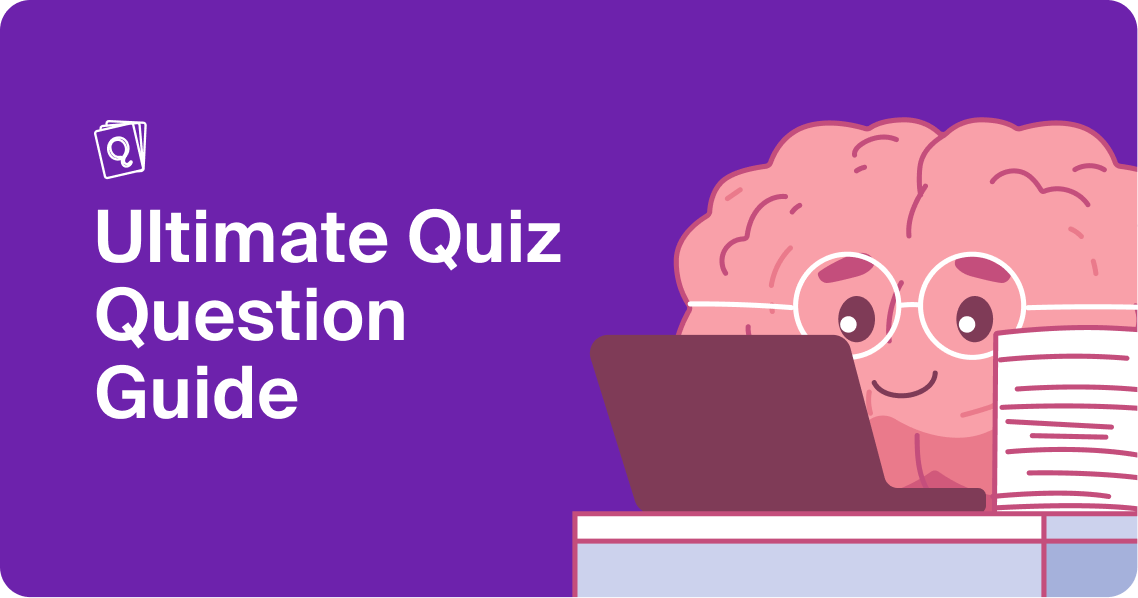
How Do I Create Believable Wrong Answers?
As someone who created many, many quizzes over the years, I can confidently say your wrong answers are just as important as the right ones. In this guide, we'll delve into how you can find and place good decoys (aka distractors) as answer options.
Why believable wrong answers matter?
A wrong answer should act in one of two ways:
- It should boggle the players' minds. It should make them forget what is right and what is wrong.
- It should subtly prompt user to be overly confident.
Studies on multiple-choice testing confirm this. When distractors are good, they lead to significantly better separation between high- and low-knowledge players. ¹
Step 1: Start With the Truth, Then Bend It
My first step is to understand the correct answer deeply. This helps me figure out where players might realistically go wrong. I ask myself:
- What’s a common misconception?
- What’s similar in category, time, or appearance?
- What’s “almost” right?
Example
Question: Which planet has the fastest rotation in the Solar System?
Correct: Jupiter
Common wrong answers:
- Saturn (also a gas giant, close in speed)
- Neptune (distant, but many confuse orbital speed with rotation speed)
- Earth (some players forget about gas giants altogether)
These wrong answers are believable because they match the category (planets) and share plausible traits.
Step 2: Match the “Surface Features”
Good distractors have the same style, complexity, and tone as the correct answer. If your right answer is “Christopher Nolan,” but your wrong answers are “Bob” and “Michael,” you’ve just told players which one’s correct.
Checklist I use:
- Length of answer matches
- Similar specificity (no “Paris” vs. “A small town in Canada”)
- Same category or subcategory
- Same grammatical form
Step 3: Use Common Misconceptions and Near Misses
Cognitive psychology research shows that memory retrieval errors often occur when people recall something similar but wrong—called “semantic interference.” I use this to my advantage.
Example
Question: What is the capital of Australia?
Correct: Canberra
Believable wrong answers:
- Sydney (most common misconception)
- Melbourne (historical capital, adds credibility)
- Brisbane (large, well-known city)
By including common wrong beliefs, you ensure your distractors feel legitimate.
Step 4: Avoid “Trick for Trick’s Sake”
There’s a fine line between believable and unfair. A distractor should be wrong for a clear reason, not because of nitpicking or overly obscure details.
Bad example: Asking for the date of the Declaration of Independence and listing “July 4, 1775” as a wrong answer. That’s just toying with the player; close dates without historical grounding feel manipulative.
Sometimes, this may be necessary to really separate your audience. But when you overdo it, this may frustrate your audience, and you may get negative reactions.
Step 5: Test, Refine, Repeat
I always test my questions with a small audience first. A simple stat I track:
- If >70% pick the correct answer → distractors are too weak.
- If <20% pick the correct answer → distractors might be too strong or misleading.
- If one distractor gets <5% picks consistently → I replace it; it’s clearly not fooling anyone.
Final Thoughts
Believable wrong answers are an art form. They require empathy with the player, awareness of common misconceptions, and a balance between plausibility and fairness. When done right, they transform a quiz from “too easy” to “can’t stop playing.”
Over the years, I’ve found that the more effort I put into the wrong answers, the more players engage, talk about, and remember the quiz.
References
- Ali, S. H., Carr, P. A., & Ruit, K. G. (2016). Validity and Reliability of Scores Obtained on Multiple-Choice Questions: Why Functioning Distractors Matter. Journal of the Scholarship of Teaching and Learning, 16(1), 1–14. https://doi.org/10.14434/josotl.v16i1.19106

Salim "The Admin" Dın
Salim has experience in content management, growth management, and building quizzes. Ever curious, he loves researching different topics and areas to turn them into quizzes. Salim has a lifelong passion for cycling and traveling.
Related Guides

Ultimate List of Funny & Clever Quiz Team Names
Your team name for quizzes tells about you; it sets the tone. It should intimidate your opponents, show your wit, but most importantly, give everyone something to laugh at. Here, you will find a list of 230+ funny quiz team names for pub quizzes, quiz nights, and any event that involves quizzes.

How Do I Create Believable Wrong Answers?
As someone who created many, many quizzes over the years, I can confidently say your wrong answers are just as important as the right ones. In this guide, we'll delve into how you can find and place good decoys (aka distractors) as answer options.

How Can You Write Great Quiz Questions?
Crafting great quiz questions is both an art and a science. Whether you're making a trivia game, a classroom quiz, or an online personality test, the quality of your questions can make or break the experience. Here's how to write quiz questions that are clear, fair, and engaging.
Found this guide helpful?
Explore more expert guides and join our community of quiz enthusiasts.